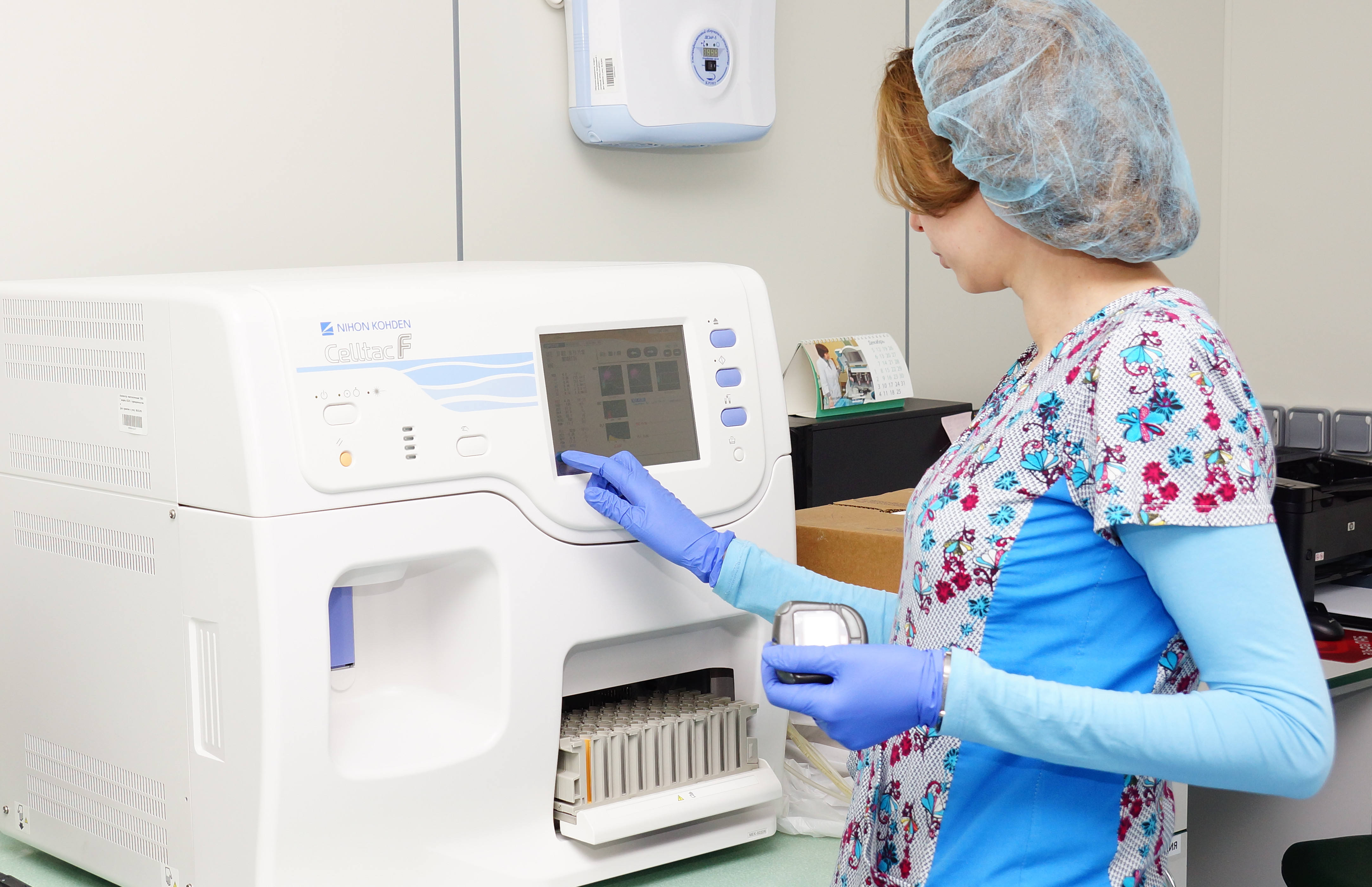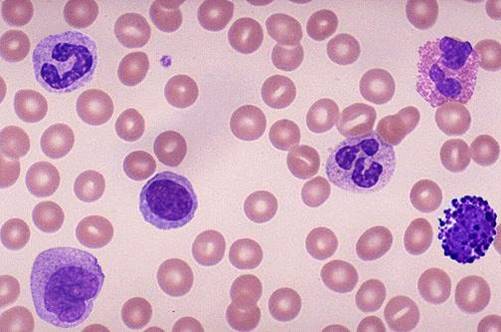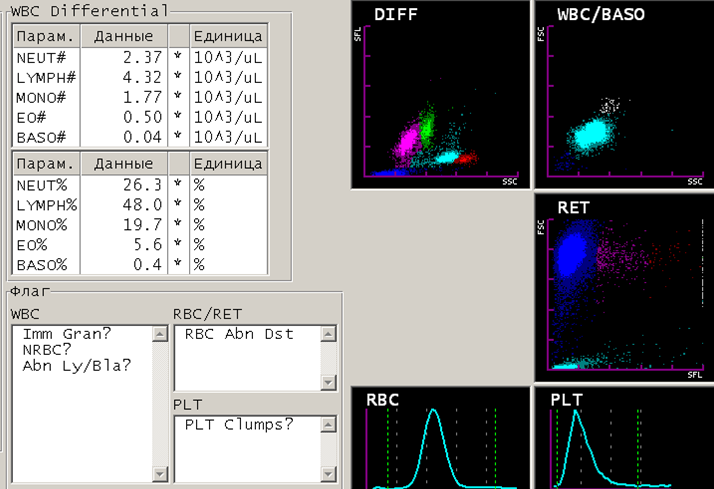Hematology tests
Hematology tests are a panel of tests that yield information on the qualitative and quantitative composition of the cellular components of the blood.
Hematology tests are performed by the Department of Pathology and Laboratory Medicine of the Center.
Most commonly, a panel of hematology tests includes a complete blood count, erythrocyte sedimentation rate (ESR), reticulocyte count, and bone marrow aspirate examination with a bone marrow differential count.
- A complete blood count – is one of the most important diagnostic tools that shows the impact of various physiological and pathological factors on the blood-producing organs. Blood tests play major role in establishing the diagnosis; and they are essential to diagnose a blood disease.
A complete blood count is performed in several steps. At first, blood samples are analyzed using a hematology analyzer to estimate concentration of hemoglobin, and to count erythrocytes, leukocytes and thrombocytes and other parameters. Then, blood spread on a microscope slide is examined under a light microscope (if necessary) to perform differentiation and measurement of percentage of different leukocyte subsets and to evaluate blood cell morphology.
A high rate of anemia disorders in cancer patients is due to several reasons, including radiation-induced suppression of blood formation, blood loss, hemolysis, infiltration of cancer cells into the bone marrow, dietary deficiency, and disruptions in cytokine production in cases of chronic diseases.
Chemotherapy also has a range of side-effects, the most clinically relevant of which being myelosuppression (neutropenia, thrombocytopenia and anemia). Neutropenia is the most common and adverse manifestation of myelotoxicity as it makes patients susceptible to severe bacterial infections.
Test results are usually ready in a couple of hours.
- The erythrocyte sedimentation rate (ESR) – is a non-specific measure of inflammation, and is used for a differential diagnosis for oncological diseases, endocrine disorders and other conditions; it is also used to monitor the progress of a disease.
The test is performed using an automatic analyzer.
The most common causes of a high erythrocyte sedimentation rate are inflammation of different etiology, paraproteinemic hematological malignancies, symptomatic paraproteinemia concomitant with malignant neoplasms, acute and chronic infections, myocardial infarction, anemia, surgical treatments, hypoproteinosis, etc.
Test results are usually ready in 30 minutes.
- A reticulocyte count test measures the number of reticulocytes (absolute count and percentage) in the body, and determines the concentration of hemoglobin in reticulocytes and reticulocyte maturity fractions.
Reticulocytes are immature red blood cells. Around 1% of red blood cells are naturally replaced by immature cells daily.
A reticulocyte count test is performed using a hematology analyzer.
A reticulocyte count test helps to monitor regeneration of the bone marrow after transplantation and intensive chemotherapy; to monitor various vitamin or mineral deficiencies, such as iron, vitamin B12 and folic acid deficiencies; to monitor toxicity of chemotherapy drugs for the bone marrow; and to detect aplastic anemia.
Test results are usually ready in a couple of hours.
- A bone marrow examination with a bone marrow differential count is an important diagnostic technique which helps to assess the hematopoiesis and the involvement of the bone marrow in cases of hematological malignancies and dissemination of malignant tumors. A bone marrow differential count is a morphological analysis of the bone marrow cells and determination of the percentage content of formed elements of the bone marrow with simultaneous assessment of the hematopoiesis.
Stained smears of bone marrow aspirates are examined under a microscope in several steps.
A bone marrow examination is also used when the clinical picture and results of blood tests are inconclusive to make the diagnosis, for example in cases of leukocytopenia, thrombocytopenia, anemia of unknown nature, pancytopenia and monoclonal hypergammaglobulinemia; and to assess a possible spreading of lymphoma when there are no abnormal cells in the blood.
Test results are usually ready in a couple of hours.

Prices for some of the main types of research:
- Complete blood count using a hematology analyzer
- Erythrocyte sedimentation rate (ESR)
- Reticulocyte count test
- Examination of bone marrow aspirates with a bone marrow differential count
Prices for some of the most common tests (listed below) can be found in the price list, using the quick search feature.

